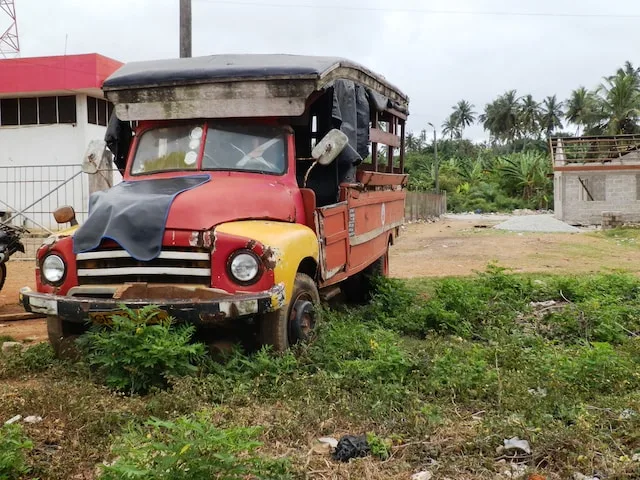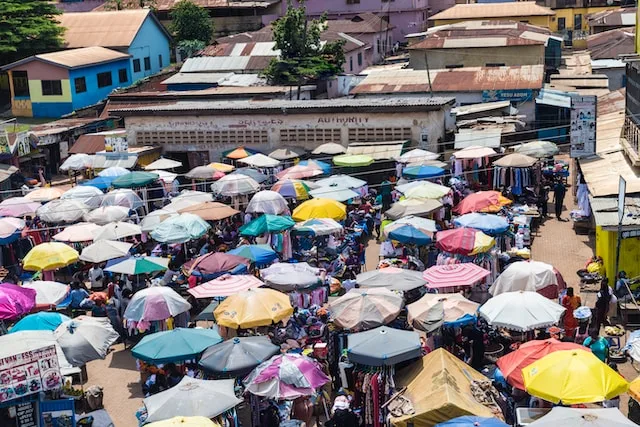Ghana is Suffering from a Political Broken Heart: A Chronicle of Disappointment and Betrayal
In the throes of Ghana’s political heartbreak, the citizens find themselves confronted with a palpable sense of disillusionment, not unlike the heartache that follows the bitter end of a romantic relationship. For many Ghanaians, the once-rosy promise of a brighter future, nurtured by Akufo-Addo’s first term, now feels like a fleeting dream, much like the heady days of young love that inevitably give way to the cold, hard reality of life.
Just as the girl and the boy, starry-eyed and intoxicated by the thrill of love, find themselves blindsided by the harsh truth that their feelings may not be enough to weather the storm, Ghanaians are grappling with the realization that their faith in their leader’s promises might not be sufficient to overcome the challenges ahead.
The emotional turmoil experienced in a relationship gone awry mirrors the rollercoaster of emotions Ghanaians have endured as they watch their once-stable political landscape devolve into a maelstrom of unfulfilled promises and mounting frustrations. The disillusionment that comes from witnessing a loved one’s shortcomings, much like the disappointment Ghanaians feel as they observe their leader’s failure to address corruption and inefficiencies, can be a bitter pill to swallow.
And in the wake of this heartbreak, the citizens, much like the girl and the boy, must find a way to pick up the pieces of their shattered dreams and forge ahead, despite the sting of disillusionment. It is a painful journey, filled with uncertainty and the lingering question of whether they can ever trust again, be it in love or in politics.
As the girl and the boy seek to heal from their heartbreak and rediscover themselves in the process, Ghanaians too must find a way to mend their broken political hearts and rekindle their hope for a brighter future. The path forward may be uncertain, but the resilience of the human spirit—whether in love or politics—remains a powerful force that cannot be easily vanquished.
When you take a good, hard look at the Ghanaian political landscape, it’s easy to see the heartbreak, disillusionment, and the lost dreams. This tale of political heartache takes us back to the 1992 elections, the dawn of a new democratic era. The air was thick with hope and the promise of change as we embarked on a trip into the unknown.

When you take a good, hard look at the Ghanaian political landscape, it’s easy to see the heartbreak, disillusionment, and the lost dreams.
Act 1: The Birth of Democracy
The year was 1992, and Ghana was buzzing with the excitement of democracy. The sky was the limit, and we all believed in the power of the ballot. Jerry John Rawlings, a former military leader who had seized power in two coups, took off his uniform and put on the mantle of a civilian leader.
Rawlings’ National Democratic Congress (NDC) won the elections, marking the beginning of a new chapter for the nation. The streets were filled with celebration, as the citizens believed in the power of democracy to shape their destiny.
Act 2: The Pendulum Swings
But as the years rolled by, the same promises made were forgotten, and the cracks began to show. Corruption, mismanagement, and a series of scandals tainted the once-promising dawn of democracy. The stage was set for a new player to step into the ring – the New Patriotic Party (NPP).
In the 2000 elections, the NPP, led by John Agyekum Kufuor, seized the opportunity and won the hearts of the disillusioned masses. The pendulum had swung, and a new hope was born. The people looked forward to a time of transparency, accountability, and real change.
Act 3: The Carousel Continues
But as the years passed by, the carousel of political heartbreak continued to spin. The NPP’s time in power was no different from the NDC’s reign. The same issues persisted, and the people’s hope began to wane.
The pendulum swung back and forth between the NDC and the NPP, each election cycle filled with false promises and the same old tune. The citizens of Ghana were trapped in a political vortex, unable to escape the disappointment and betrayal.
Act 4: The Heartbreak Deepens
Now, with the passage of time and countless broken promises, the heart of the Ghanaian people lay shattered. The once-celebrated democracy has become a source of disillusionment, and the people’s faith in the system is all but gone.
The younger generation, born in the cradle of democracy, has become the most disenchanted. They have come of age witnessing the endless cycle of corruption, empty rhetoric, and unfulfilled dreams. The hope that once filled the air has turned into a thick fog of cynicism, suffocating the spirit of the people.
Act 5: The Turbulent Era: 2008-2020
The tumultuous period from 2008 to 2020 was marked by a vicious struggle for power between the NDC and NPP, with the nation’s stability hanging in the balance. The political pendulum swung wildly, as if possessed by a demonic force, leaving a trail of turmoil in its wake.
Act 6: The 2008 Elections: A Razor’s Edge
The 2008 elections were a nail-biting affair, as Ghana teetered on the brink of chaos. The NDC, led by John Atta Mills, emerged victorious in a tightly contested race against the NPP’s Nana Akufo-Addo. The election results were so close that a run-off was required, heightening the tension and anxiety gripping the nation.
The NDC’s victory, however, was short-lived, as President Mills passed away in 2012, leaving a gaping hole in the heart of the nation. Vice President John Dramani Mahama assumed power, navigating the murky waters of political uncertainty.
Act 7: The 2012 Elections: A Prelude to Despair
The 2012 elections saw the NDC’s John Mahama pitted against the NPP’s Nana Akufo-Addo once again. Mahama emerged victorious, but the victory was tainted by accusations of voter fraud and electoral malpractice. The NPP, bitter and vengeful, challenged the election results in the Supreme Court, casting a long shadow over Mahama’s presidency.
Economic Woes and the Energy Crisis
Throughout this period, Ghana faced a myriad of economic challenges, from a depreciating currency to soaring inflation rates. The energy crisis, known as “Dumsor,” plunged the nation into darkness, leaving businesses and households gasping for breath.
The 2016 Elections: The Pendulum Swings Again
The 2016 elections marked a turning point, as the NPP’s Nana Akufo-Addo triumphed over the incumbent John Mahama. Akufo-Addo’s victory was seen as a referendum on Mahama’s inability to address the nation’s pressing concerns. But as Akufo-Addo took the reins, he too found himself grappling with a sluggish economy and an increasingly restless populace.
The 2020 Elections: A Nation on the Edge
The 2020 elections served as a grim reminder of the fragility of Ghana’s political stability. Amid a global pandemic, the NDC’s John Mahama challenged the NPP’s Nana Akufo-Addo in a bitterly contested election. Akufo-Addo emerged victorious, but the NDC cried foul, alleging voter fraud and irregularities, further deepening the political divide.
As Ghana marched into a new decade, the nation found itself burdened by the weight of its past, the political heartbreak seemingly etched into its very soul. But despite the trials and tribulations, Ghanaians remained resilient, a testament to their unwavering spirit and determination to forge a brighter future.
And now, in Akufo-Addo’s second term, the nation finds itself grappling with a myriad of unfulfilled promises and mounting frustration. The President’s grand vision of a prosperous Ghana appears to be slipping through his fingers, as the nation is battered by forces beyond its control.
The global turmoil caused by the war between Russia and Ukraine has sent shockwaves across the world, and Ghana has not been spared. The conflict has disrupted global supply chains and caused energy prices to soar, further exacerbating the nation’s economic woes.
The ever-looming specter of COVID-19 has also taken its toll, as the pandemic continues to ravage communities and strain the nation’s healthcare system.
But perhaps most damning of all is the President’s perceived failure to address the corruption and inefficiencies that have long plagued Ghana’s political landscape. His promise to reduce the size of government and tackle the issue of political appointees has fallen by the wayside, as Ghanaians continue to witness an ever-growing bureaucracy and a seemingly endless stream of scandals.
The issue of illegal mining, known as “galamsey,” also continues to fester, as the nation’s natural resources are plundered and its environment ravaged. Despite the President’s vow to eradicate this illicit practice, it remains a stubborn and destructive force, casting a shadow over his administration’s credibility.
And as the cost of living continues to climb, Ghanaians are becoming increasingly disillusioned with their leadership. The dream of a better life for all, so tantalizingly close during Akufo-Addo’s first term, now appears to be slipping further out of reach.
It is true that Akufo-Addo has faced formidable challenges during his second term, but the weight of these unfulfilled promises and mounting frustrations cannot be ignored. As the nation’s political heartbreak endures, it remains to be seen whether Akufo-Addo’s government can navigate the treacherous waters of disappointment and disillusionment to chart a new course towards a brighter, more prosperous future for all Ghanaians.
Conclusion: The Search for Redemption
Ghana, once again finding itself knocking on the IMF’s door, has left its citizens grappling with a sense of déjà vu. The financial minister, Ken Ofori-Atta, was hailed as a genius—a man armed with an Ivy League education, a successful background in private business, and a familial connection to the president. He was seen as the guiding light that would steer the nation’s economy toward prosperity. A man who, despite using Bible quotes to deliver budget speeches, has found himself unable to cope with the mounting challenges facing Ghana today.
The citizens of Ghana, who once looked upon him as a beacon of hope, now find themselves questioning the capabilities of the man they once admired. In the face of such a stark reality, disillusionment has crept in, leaving Ghanaians feeling betrayed by the very person they entrusted with their economic future.

It is a bitter irony that someone who was once the symbol of hope and progress for Ghana now finds himself at the center of the country’s financial woes. Ofori-Atta’s inability to deal with pressing issues, such as rampant corruption, soaring inflation, and a dwindling currency, has cast a dark cloud over his once-stellar reputation.
The citizens of Ghana, who once looked upon him as a beacon of hope, now find themselves questioning the capabilities of the man they once admired. In the face of such a stark reality, disillusionment has crept in, leaving Ghanaians feeling betrayed by the very person they entrusted with their economic future.
As the nation reels from this disappointment, questions abound regarding the true nature of Ofori-Atta’s genius. Was it merely a mirage, a carefully constructed image designed to inspire confidence and trust, only to crumble under the weight of reality? Or is it possible that even the most brilliant minds can falter in the face of the myriad challenges that plague a developing nation?
Whatever the answer may be, the fact remains that Ghana finds itself at a crossroads, once again seeking the aid of the IMF. It is a sobering reminder that the path to economic stability is fraught with difficulties, and even the most capable leaders can stumble along the way.
As Ghana faces this latest chapter in its economic journey, its citizens must grapple with the realization that the genius they once revered may not have been the panacea they had hoped for. But as with any setback, it is an opportunity to learn, grow, and ultimately, chart a new course toward a brighter, more sustainable future.
We must ask ourselves: Is there still hope for redemption? Is there a way to break this cycle of political heartbreak and revive the Ghanaian Dream?
The answer lies in the hands of the people. It is up to us, the citizens of Ghana, to demand more from our leaders and refuse to be swayed by empty promises. We must hold them accountable and, more importantly, hold ourselves accountable for the choices we make at the ballot box.
The journey to heal our politically broken hearts will be long and treacherous, but we must remember the words of Thompson: “When the going gets weird, the weird turn pro.” It is time for us to turn pro and fight for the future of Ghana.


Comments are closed.